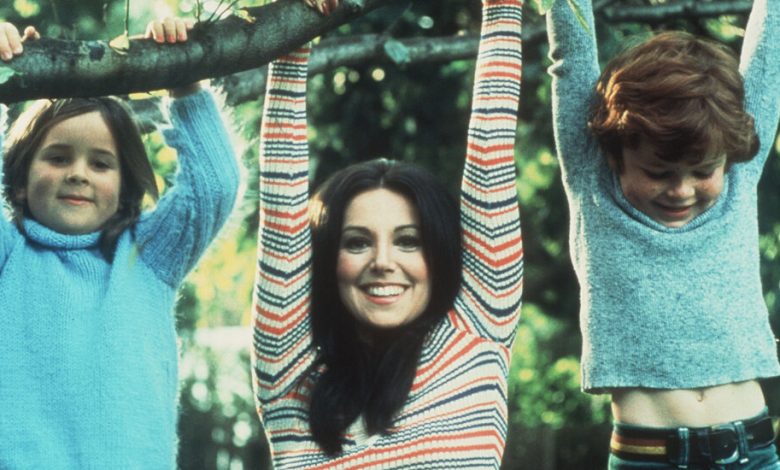An Iconic Album, and Gender Identity Today

More from our inbox:
- Memo to Writers: Write. Read Aloud. Edit. Repeat.
- How Disability Shapes Perspective
- World Cup Fans Don’t Speak for All Arabs

Marlo Thomas in “Free to Be … You and Me.”Credit…Viacom
To the Editor:
Re “Free to Be You and Me. Or Not,” by Pamela Paul (column, Dec. 5):
Ms. Paul does an excellent job in reminding readers what the recording and book “Free to Be … You and Me” was all about. And, critically, it bravely suggests that much of the trending thought on gender and gender politics may be misguided and even harmful.
To my mind, the problem is not innate gender identity that does not match biology, but rather society’s assignment of rigid definitions of what gender is. If a boy or a girl can truly express themselves however they want, without concern that they are not conforming to these definitions, then the fact they are biologically male or female will be largely irrelevant, and there would be no need for a biologically male person to “identify” as a girl or woman, and vice versa.
“Free to Be … You and Me” was an important step toward that kind of “genderless” world, and it’s unfortunate that its message is being lost and subsumed by a different kind of gendered society, where people need to create new gender definitions to identify with.
Mark Patrick
Tucson, Ariz.
To the Editor:
My parents, having listened to “Free to Be … You and Me” as kids in the 1970s and ’80s, saw fit to pass it down to my brothers and me. I particularly enjoyed listening to the reimagined myth of Atalanta, who rejected her father’s insistence that she had to get married and instead decided to travel the world on her own.
The story helped me to understand the joy in breaking free of traditional expectations around gender, and so I find it strange that Ms. Paul used this album to promote her more rigid perspective on gender identity.
She argues that it’s great to challenge gender norms, as long as we continue to insist that sex is inherently binary — and she pats herself on the back for having like other liberated kids “accepted the reality of biological science” with regards to her own identity, while rejecting “the fiction of gendered social conventions.”
I believe that a truly liberated approach to gender is one that embraces fluidity over any kind of strict binary. Then we can truly build a future where we are free to be you and me.
Andie Walker
St. Paul, Minn.
To the Editor:
Pamela Paul raises important points. As one of the people who helped found Ms. magazine and the A.C.L.U.’s Women’s Rights Project, I was active in the feminist movement when “Free to Be” was coming into being. Ms. Paul is correct that our goal 50 years ago was to unshackle boys and girls from gender stereotypes.
Today young children face a “smorgasbord” of confusing labels (gender identity, gender expression, gender performance) along with the notion that their gender was “assigned at birth” but is actually whatever they feel themselves to be right now.
This notion has led to dangerous medical intervention, and it encourages the very sex-role stereotypes we fought so hard to rid society of. It is contrary to our lived experience and the fact that each of us functions on a spectrum of human sexuality.
Brenda Feigen
Los Angeles
The writer is the author of “Not One of the Boys: Living Life as a Feminist.”
Memo to Writers: Write. Read Aloud. Edit. Repeat.
To the Editor:
Re “How the Spoken Word Shapes the Written Word” (The Story Behind the Story, Dec. 11):
Sarah Bahr’s description of New York Times reporters who read their copy aloud before submitting it to an editor makes their practice sound like an aberration.
As the regular columnist for The Minneapolis Star Tribune on the craft of clear writing, I would be surprised to learn that any writer has not been encouraged to adopt the practice.
All the writing coaches I know of — and famous authors who have produced books on writing well — list reading copy aloud as one of the most important steps in writing clearly.
Clear writing results from rewriting, and rewriting benefits from reading drafts aloud. A further benefit comes from having someone else read the copy aloud to the writer.
Gary Gilson
Minneapolis
To the Editor:
I commend an additional scenario to reading your draft aloud. I beseeched my students to avoid editing on the screen.
I urged them, as a tried-and-true alternative, to print out their drafts, then step away from the desk. Next, mindfully self-edit — pen and draft in hand — from start to finish. Then the moment would be opportune to read aloud the draft under construction.
Submitting a paper without self-editing might very well result in the dreaded C+ range!
Michael H. Ebner
Highland Park, Ill.
The writer is emeritus professor of American history at Lake Forest College.
How Disability Shapes Perspective
To the Editor:
Re “Musician With Down Syndrome Upends Alternative Sound” (The Saturday Profile, Dec. 3):
Thanks for this article on how the experience of disability contributed to the musician Miguel Tomasín’s unique sound. What inspired me was how the writer demonstrated that disability may be a part of a person’s experience, but not their core identity.
Mr. Tomasín’s success is earned and his own. He brings us joy through his music, in addition to a much-needed call to action to break through institutional barriers and biases.
I am a special needs attorney and the mother of an adult daughter with developmental disabilities. The people I meet with disabilities are isolated. They tell me they are treated as though they are ill or do not belong. For this reason, disability advocacy focuses on government funding for home- and community-based services so that people with disabilities can be a part of their communities.
A story like this matters, because it shows how change starts when people value the person and recognize their intrinsic gifts and talents.
Saundra M. Gumerove
Jericho, N.Y.
The writer is president of the board of directors at AHRC Nassau, a social services organization for the developmentally disabled.
World Cup Fans Don’t Speak for All Arabs
To the Editor:
Re “Israeli Journalists at World Cup Get a Chilly Reception From Arab Fans” (news article, Dec. 4):
Gauging Arab public opinion based on interviews with World Cup fans in Qatar — where anti-regime Iranians were scared to share their names with the media and where European teams were forced to abandon plans to express support of L.G.B.T.Q. rights — is a futile exercise.
The article suggests that people who live in Arab countries that have peace treaties with Israel are unified in opposing normalization. But in autocracies, there are few accurate reflections of public opinion. It is a mistake to draw broad inferences about popular sentiment from a handful of anecdotes.
When gauging Arab attitudes toward normalization, one must consider that some Arab governments have passed laws that criminalize the advocacy of normalization and have sponsored social shaming campaigns targeting peace supporters. To cover only the anti-peace faction, while pro-peace Arabs face harassment and prosecution, harms the quest for peace.
Hussain Abdul-Hussain
Washington
The writer is a research fellow at the Foundation for the Defense of Democracies.





